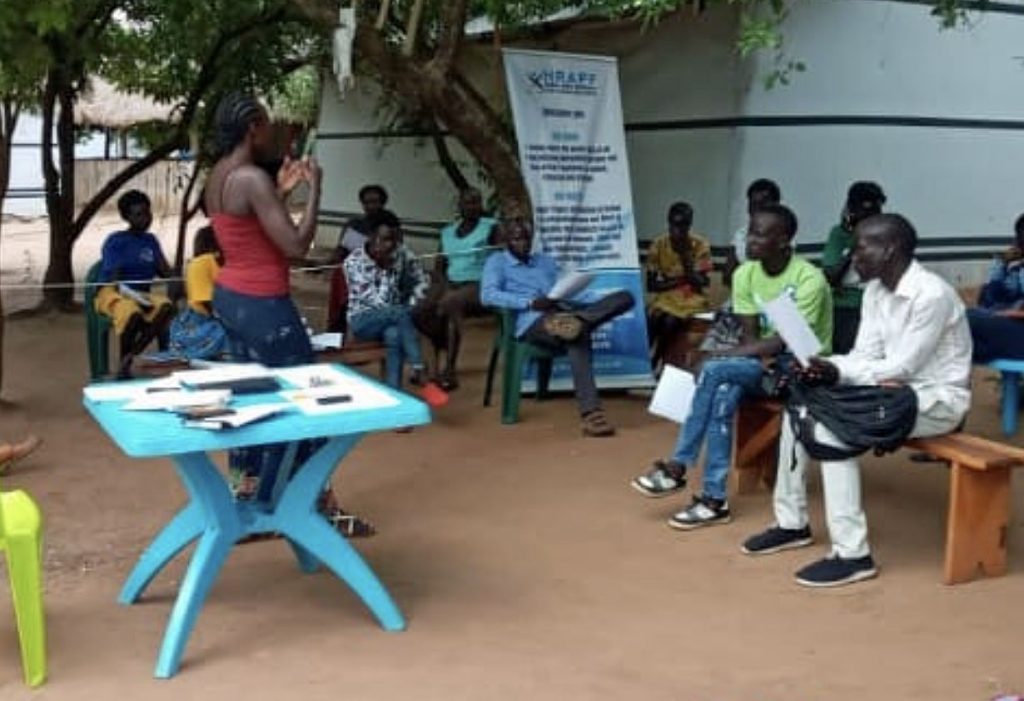Anti-LGBTIQ violence in Uganda continues to worsen, report says
Joto La Jiwe is a Ugandan correspondent for the African…
Ugandan LGBTIQ rights group says its caseload nearly doubled last month

A new report by the Human Rights Awareness and Promotion Forum (HRAPF) has revealed a significant increase in the number of cases in Uganda in which individuals were targeted for violence and other violations purely on the basis of their sexual orientation, gender identity, or gender expression.
According to the report, HRAPF handled 18 cases in August 2025 affecting 26 people, compared to 12 cases in July in which 14 people were affected. The number of people affected almost doubled.
Out of the 18 cases in which LGBTIQ people were specifically targeted for violent or otherwise detrimental treatment in August, 6 cases involved actual violence, 2 involved threats of violence, 6 cases involved arbitrary arrests, 3 were eviction cases, and 1 was a case of discrimination on the basis of sexuality.
Notably, cases of arbitrary arrests for sexuality-related reasons increased significantly from 1 case affecting 1 person in July to 6 cases affecting 10 individuals in August.
There were 6 reported cases of actual violence affecting 9 individuals, and they all involved physical assaults and actual injuries to the victims. Two cases were reported from Kampala while one case was reported from each of the districts of Iganga, Gulu, Mbarara and Mbale.
Three of these incidents were perpetrated by unknown persons while one was perpetrated by an individual from the local community, one by local leaders and one by a family member.
The cases were spread across four regions of the country, a development that could mean that the violations are no longer restricted to previous hotspots of Central and Western Uganda.
Cases of physical violence
In the Ugandan capital Kampala, the four affected persons were sleeping in rooms they had rented at a lodge when a group of five people, led by the area chairperson and defense secretary, forcibly entered the rooms, started beating them up and then dragged them outside, accusing them of being homosexuals. It was while they were being dragged towards the road that they managed to escape. They all sustained injuries.
In Gulu, the affected person runs an organisation that provides support to LGBTQ persons and sex workers. She was walking home at about 10.00pm when three men unknown to her attacked and beat her up, accusing her of causing moral decay in the area by supporting homosexuals and sex workers. Her arm was broken during the attack, and she was only saved by a boda boda rider [Ed: a “boda boda” is a bicycle taxi] who shone headlights on the scene, scaring them away.
In Mbarara, the victim had been previously harassed routinely by some men in a club where he often goes. On the day in question, he was playing pool with friends in the club when the same group of men ordered them to stop playing, insisting that pool was for real men, and demanded that they leave the pub. When the client resisted and tried to argue with them, they verbally insulted him before one of them hit him on the head with a beer bottle, then another picked a paver from the floor and hit him above his right eye.
In Mbale, the victim, a transgender man, has faced repeated harassment from his cousin since August 2024, with at least two incidents of assaults which had even been reported to the police. On 20 August 2025, his cousin once again attacked him at his home, threatening to kill him if he did not leave the residence for “bringing shame on the family,” even though the client’s parents have accepted his sexuality and do not hold issue with his gender expression.
Arrests and evictions
The 6 cases of arbitrary arrests purely based on SOGIE happened in the Districts of Kampala, Wakiso and Mbarara while the 3 evictions cases affecting 4 people were reported from Kampala and Ntungamo districts. The evictions were executed by the landlords and local leaders.
It remains abundantly clear that, despite a notable reduction in the number of cases of violence and violations perpetrated primarily by non-state actors, the situation still remains dire for LGBTIQ persons, and the state institutions in the criminal justice sector continue to enforce Uganda’s Anti-Homosexuality Act 2023 (AHA) in a way that prejudices the right to liberty for LGBTIQ persons across the country, despite slight improvements in the legal environment in April 2024.
The report concludes that the only apparent solution to this impasse remains a complete overhaul of the AHA to provide for specific protection from violence and human rights violations on the basis of real or presumed SOGIE, as required by African Commission Resolution 275.



